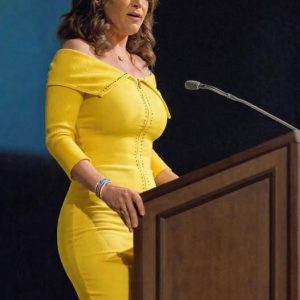Monday’s National Prayer Service in Washington, D.C., intended to unite political leaders in a moment of reflection, sparked controversy when Episcopal Bishop Mariann Edgar Budde delivered a speech that many viewed as overtly political. Her remarks, directed at President Trump and Vice President JD Vance, centered on progressive issues such as the treatment of LGBTQ+ youth and undocumented immigrants.
Bishop Budde called on the president to “have mercy” on marginalized groups, specifically mentioning immigrant workers who contribute to the economy yet face discrimination and fear due to their legal status. Trump and Vance appeared visibly uninterested, exchanging glances during her speech, which many interpreted as dismissive.
Budde defended her comments during a CNN interview, stating her message was rooted in her faith and a desire to remind the audience of the humanity of those often overlooked. “I was speaking to the president and everyone listening, emphasizing mercy and compassion,” Budde explained. She added that her remarks were personal, based on her interactions with affected individuals.
The backlash was swift, with critics accusing Budde of politicizing a sacred event. Trump himself took to Truth Social, describing her as a “Radical Left Trump hater” and condemning her tone and content. He also criticized her for ignoring the crimes committed by some undocumented immigrants, framing the issue as a “giant crime wave.”
Budde, however, has a history of activism, including donations to former President Obama’s campaign, fueling further criticism from conservative circles. Yet, her supporters argue that her remarks were a necessary call for empathy and justice, particularly in an increasingly polarized political climate.
The incident has reignited debates about the intersection of faith and politics, with opinions divided on whether Budde’s remarks were a bold stand for compassion or an inappropriate injection of partisanship into a prayer service meant to unify.





